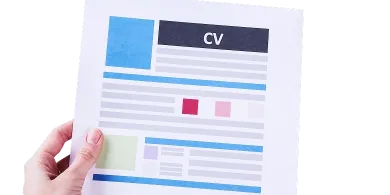Table of contents

You have probably done your best and worked hard to make your application perfect and effective. You think your battle has finished once you’ve successfully landed the job interview.
However, it’s certainly not the end of your battle, as there are many tricky interview questions you need to be prepared to answer in order to get noticed and win the recruiter’s trust.
It’s equally significant to prepare yourself for behavioral and skill-related questions, as well as a question about the desired salary which the HR manager is inevitably going to ask.
How to get ready for the job interview properly and be prepared to answer any tricky questions? There are different ways to do that. You can read various tutorials and interview training programs, hire a coach, or use our professional advice from the resume writers online and become armed at all points for the interviewing process.
Otherwise, answering the question about your salary expectations the wrong way may cost you a job offer. Or, it may also place you in an undesirable situation when you will be forced to consider a position at a less-than-desirable salary.
Many job seekers wonder what the big deal is about the question of the desired salary on the application. Yet it’s a challenging question that can change the whole climate of your job interview due to a few digits of difference in thinking.
Generally, they want to know whether they can afford to hire you before they spend time on you. Certain recruiters are bargain hunting and want to place a bigger premium on particular positions than other companies in spite of the general market value for these positions. This can result in getting higher or lower rates for a certain position.
This can result in getting higher or lower rates for a certain position. If you don’t want to lose the advantage, learn the most important questions to ask your interviewer.
Another possible reason for such a question is the recruiter’s attempt to see how you value yourself and your work. Are you self-confident and will proudly state how much you deserve or will you accept whatever they offer you?

Also, experienced job seekers shouldn’t ignore LinkedIn, and this new LinkedIn feature especially!

Before you start thinking about the possible answers to the desired salary question, it’s significant that you know the rate for positions in your location and in your industry. There is a number of websites where you can find this information.
For instance, according to Payscale’s recent statistics, the average salary of a project manager in an IT company in 2017 is about $86,000 a year or $44 an hour. If you are not sure about your desired salary range, this desired salary calculator can help you calculate the rate for your desired salary to get an idea of what job offers you should take into account and make your job search really effective.
You shouldn’t hurry to answer this question as this innocent question may lead to some problems during the interview.
If you answer it too early when the recruiter isn’t sold on you yet and still comparing you and other candidates, your answer can be determinative in the recruiter’s decision, so it’s always better to negotiate later and avoid saying a specific number beforehand. Secondly, you may be tempted to name a specific number in order to move forward in the application process.
Some recruiters will find it attractive and jump at the lowest salary offer, but many employers who understand the marketplace will doubt whether they should hire candidates who are too eager to lower their standards to land the desired job.
This is why make sure you know exactly how to act when the salary question arises!